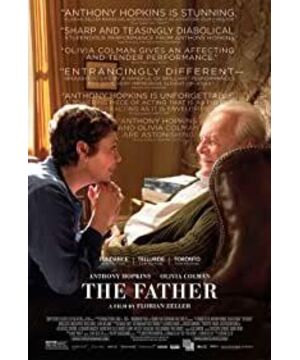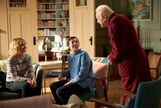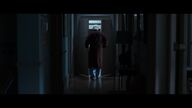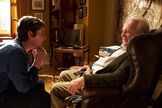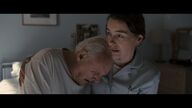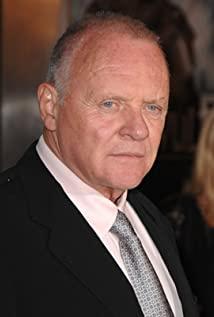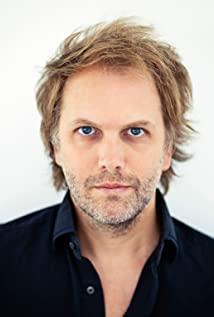When I first arrived in the UK, in Cambridge, I desperately wanted to learn English, watched a lot of dramas every night, listened to the radio all the time when I slept, even participated in more and more reports, and went to the theatre to watch various dramas. One of the more profound is to go to a forum for the elderly to face death. Looking at the audience, the average age should be seventy or eighty years old. There are a few young people my age, some middle-aged people volunteering, and more are the elderly who are facing the topic of death.
It started off with multiple reports, one of them being a doctor, promoting how good the NHS is and how it extends the lifespan of various diseases, especially cancer. There was a female volunteer behind, who slammed the doctor's theory. She mentioned her own example: her sister is a warm and open person, but at the most colorful time of her life, she was injured while windsurfing and became a vegetative person with no spontaneous breathing. In the ensuing years, faced with such an impossibility of recovery, she and her parents made their own decisions, believing that, out of their knowledge of their daughter and sister, she did not want to live like this, instead of seeing it this way Let her go, let her go. However, such a decision was not supported by the hospital and the court. The family did not have the right to decide her right to live as a vegetative person, and they still gave her an oxygen bottle for infusion. She said that the purpose of such a story is to sign her own death consent form, and to leave the decision-making power of 'when she is seriously injured and unable to decide her own life and death' to others, usually her parents. In the subsequent group discussions, this group was also the largest.
I attended a euthanasia seminar. Each group has one volunteer. The parents of our group of volunteers were all euthanized. At that time, an old grandfather in his 80s and 90s shared his story. He has been married for decades, and his lover died three years ago. Since then, he has not been able to find the meaning of his life. He has daughters and grandchildren, but these happiness cannot make up for the pain of losing the love of his life. He felt that the happiness he brought to his daughter and other relatives could not make up for the pain that life brought to him, and he always wanted to get rid of it. Even while complaining about the absence of euthanasia in the UK, he said why can't we do it ourselves? (Meaning suicide) At that time, we listened to Busy and persuaded him, 'I might make things worse', but in fact, we had no better reason to convince this old man whose life experience was richer than our own.
In the discussion, the most controversial question was how to get euthanasia for Alzheimer's disease? The parents of our group of volunteers had some early symptoms of Alzheimer's disease, and they chose to leave before they were completely lost. But the controversy is that Alzheimer's patients may authorize others to decide their own euthanasia at the earliest symptoms, but as the symptoms develop, their desire to survive becomes stronger, which may be the same as when they were awake before. It is contrary to the authorization of the family, so the relatives often can only watch them unable to extricate themselves in their own pain.
Talking about such an experience is not to promote euthanasia, but to want everyone to face up to the existence and seriousness of Alzheimer's disease. Many times we may think that our daughter's decision is cruel, but in fact it is not, the daughter can be considered to have done her best. My grandfather already has some Alzheimer's disease. Although he can recognize some people sometimes, it is very similar to the performance in the movie. Some of his memories are already in a state of no emotion. There is a state of indifference to what is happening around you. There was no look in his eyes, what he saw was a kind of laxity. It gives people a feeling of 'the body is still the same body, and the person is not that person anymore'. Such a situation can only be worse in rural China compared to the more mature and affluent London. When my grandfather first developed symptoms, I once suggested that my parents should give him more attention, and even give him more alimony to increase nutrition, which can delay the development of the disease. Nothing was done, and the disease deteriorated sharply. Maybe this is the so-called long-term sickness without a filial son, or it is the reason for poverty. The incidence of Alzheimer's and other diseases of old age can only gradually increase as we live longer, and in the absence of a large number of supporting facilities, our situation can only be worse than their developed countries.
I don't understand Alzheimer's and I don't know what their world really is. The movie uses another angle, from the patient's point of view, which is a good entry point, but such an angle leaves the audience in a fog. Originally a touching movie, it seems to have some plot or even horror. No matter what time you can't brew enough emotions, the accumulation of emotions does not have a certain follow-up force, and in the end, you are moved instead of moved.
What is revealed in the movie, but also may be faced in reality, is the issue of the rights of the elderly with dementia. When they are trapped in their own time, they are likely to be unable to express their emotions clearly, and when faced with verbal or even physical violence like in the movie, it is inevitable that they can only endure. As a family member, if you don't make enough energy and emotional investment, it is difficult to perceive the problem.
Overall, the family is clearly divided into two sides, one is the daughter D1 and the mother (who has passed away); one is the father and the other is the daughter D2 (who has passed away). As the only two remaining, their emotions are not as deep as they are apart. Although his father was an engineer, there lived a lively man at heart, manifested in tap dancing and often British humor. The daughter is a very rational being, and the father said it came from his mother. Therefore, it can be imagined that in childhood, the daughter D1 and the mother are responsible for maintaining the decent of the family, while the other daughter D2 and the father are responsible for the vigour of the family. This division of labor also formed a tacit understanding and understanding between D1 and his mother, D1 and his father did not, and D2 and his father formed a perfect match. In a situation where there is a very sober mother, the father's role is to be a little closer, which is probably where little diddy comes from. But unfortunately, daughter D2 passed away unexpectedly. As a father, the male protagonist is likely to suppress his emotions before suffering from Alzheimer's disease, and this emotion is vented after the onset of the disease, so only the daughter D2 is the expression of his favorite. And this kind of plot design is very similar to the family of the Queen of England. It happens that daughter D2 plays the middle-aged Queen of England. Queen Elizabeth II also has a younger sister who is a socialite. The Queen's father, the former King George VI, stuttered and was shy since childhood, while the Queen's mother, the Queen Mother Queen Elizabeth, was a very resolute woman who had always firmly supported her husband, King George VI. We all know that the Queen herself is a symbol of restraint and forbearance.
In addition, seeing the news that the clinical effect of a drug for Alzheimer's disease in the United States is not good, it really makes people sigh, and there is still a long way to go before the treatment.
View more about The Father reviews


